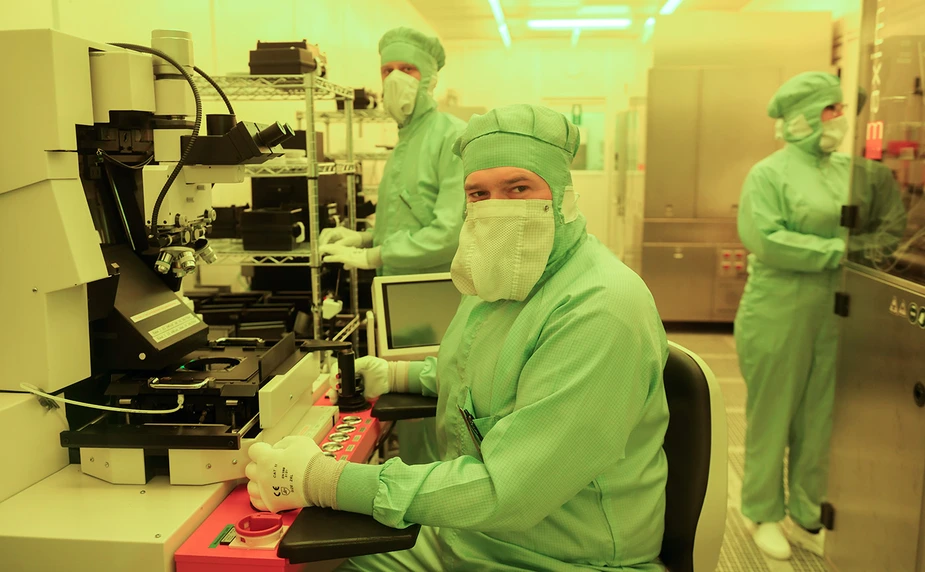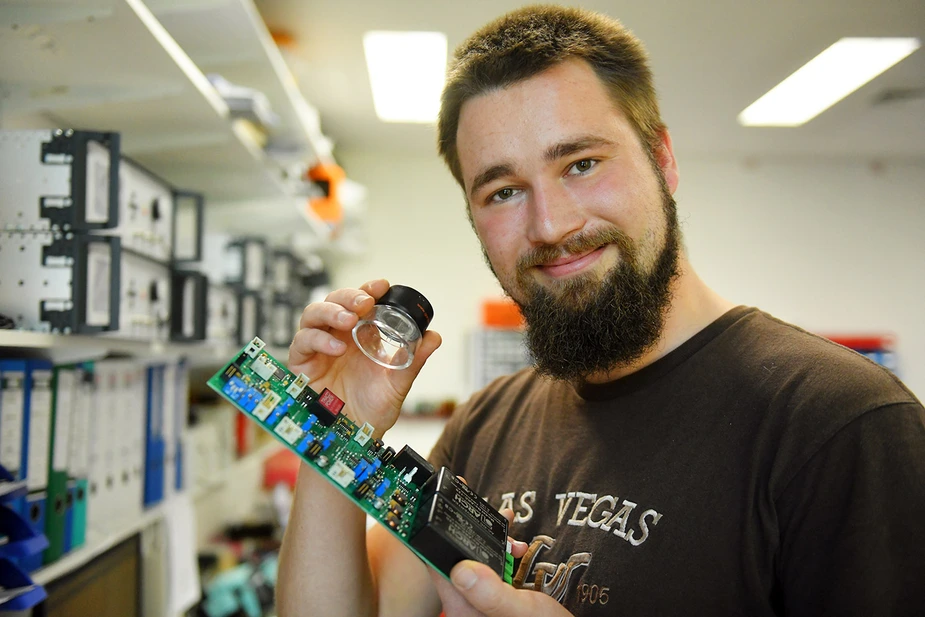Starting out by dropping out
Two apprentices from Adlershof tell us about their new careers
Hundreds of thousands of young people in Germany go to university. The natural sciences are increasingly popular. However, every third student drops out of college. They do so for various reasons. Dropping out must not mean the end of good career prospects. We look at two examples from Adlershof to see that it is often the start of something new.
Dominik Sudau studied biotechnology at the Technical University in Berlin. He dropped out after studying for six semesters. Why? “On the one hand, the concept of my course was too theory-based for me. And then there were financial reasons.” Although he received BAföG, the federal financial support for students, he maintained a job on the side as a freelance mathematics tutor for secondary school students.
“When I turned 30, I didn’t have the feeling that I was going anywhere,” says Dominik. He did some online research on apprenticeships for laboratory jobs. Two things were certain: he wanted to work in a natural science or technological occupation and stay in Berlin. He applied to several companies, the Ferdinand-Braun-Institute, Leibniz-Institut für Höchstfrequenztechnik (FBH), and proMano, an Adlershof-based association that fosters education and training in microsystems technology. “I got my first positive response from the FBH,” he remembers. He learned later that proMano had forwarded his application to the institute. In September 2016, he started a three-year apprenticeship as a microtechnologist, spending three days a week at the lab and two days a week at vocational school.
At his vocational school, he is the oldest but not the only college dropout. Indeed, his college experience helps him to shorten the apprenticeship by six months. The prospective microtechnologist is looking forward to completing his training in January. We asked him what intrigues him the most about his new job. “Working on future technologies,” he says. The 32-year-old is already planning to get further training. As a microtechnologist, the next professional level is to become a technician. This would require going to advanced training in Itzehoe near Hamburg four times for four weeks. Dominik would be happy to do it.
Hedda Zechner is an academic advisor for “Dropout”, a project of Humboldt-Universität zu Berlin (HU). Her job is supporting students who are at their wit’s end. The most frequent question: “Should I drop out of college?” As an academic advisor, she says, it’s her job to support students in making a decision, not to make the decision for them. During her sessions, she discusses the pros and cons with them as well as alternatives and strategies.
The reasons for dropping out are complex. They can include performance issues, low motivation, illness, and a lack of career prospects. The main reasons are too little interest in the course topics and false expectations to the course. One half of the students seeking support have just started studying and are between their first and third semester. One fifth have already exceeded the normal period of their course. That portion of students have often struggled with their decision for a long time or had to overcome many obstacles during their studies.
Maximilian Kosche also struggled. The 26-year-old dropped out of his computer science course in Mannheim after two years. He then worked as a geriatric nurse and caretaker for over a year before he went back to university and studied physical technology in Wildau. “I studied for five semesters and was almost done,” he says, “but then I couldn’t do it. The final exams, the pressure to call up everything I had learned in all those years.”
Sometimes it is the best to draw a line under college. “Initial doubts are often repressed for fear of shame and failure.” This makes it even more important to realise that nobody is alone.
Maximilian Kosche now started an apprenticeship as an electrician, which is a much-needed job at Laser Electronics, an Adlershof-based company. It is a good feeling to be needed. Due to this prior experience, Kosche was able to skip the first year at vocational school. If all goes well, his company will take him on after his apprenticeship.
Students at the HU’s campus in Adlershof can study geography, chemistry, computer science, mathematics, physics and psychology. Students from all these subjects seek advice on dropping out. The reasons are diverse. In chemistry, difficult final exams are often decisive. Computer science students often yearn for a more practical approach.
All in all, the students from the campus in Adlershof receive a high-quality education. Hedda Zechner is convinced: “My experience has shown that dropouts are highly sought-after on the job market.”
By Kathrin Reisinger and Sylvia Nitschke for Adlershof Journal
Online resources for potential drop-outs
- hu.berlin/studienabbruch
- www.studienabbruch-und-dann.de
- www.queraufstieg-berlin.de
- www.studienzweifler.com
Links:

